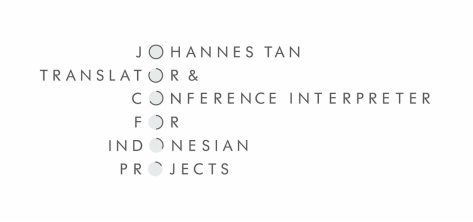Between Stockholm Syndrome and Lima Syndrome
Part 49: It Takes Two to Tango

Why do we believe in what we believe? Perhaps because as believers—whether we believe in alien abduction, self-flagellation, the shroud of Turin, virgins in paradise, or Nigerian get-rich-quick schemes—we basically consume, then mercilessly get consumed by, a belief. If that's not bad enough, then we may have to defend our beliefs with our lives, for heaven's sake.
The problem is that as consumers we do not always act rationally. In fact, more than often, we act irrationally. Throughout our adult lives, each of us must have experienced some kinds of buyer's remorse, that familiar sense of regret after making a purchase (or voting for a politician). I certainly have more than my fair share of such regrets.
As stated in Part 3 (Interpersonal, Political and Financial Stockholm Syndrome), every year, thousands of Black Friday shoppers camp out over the Thanksgiving holiday, valiantly enduring the cold, rainy, and windy November darkness to secure a place in front of the line, merely to get the most desirable "doorbuster deals" which are actually sub-standard products, specifically manufactured with lower-quality specifications just for Black Friday.
This irrationality has been a fascinating subject among prominent scholars. In a paper published in the NBER (National Bureau Of Economic Research) Working Paper Series titled The New Science of Pleasure (2013), economics professor Daniel McFadden of University of California Berkeley admits the many ways economics fails to explain how consumers make decisions—and what economics can learn from psychology, anthropology, biology, and neurology. Now, how often does an economics professor admit that the science of economics fails to explain consumer behaviors? Well, he is not alone.
Dan Ariely, a professor of behavioral economics at Duke University, is another scholar who focused his attention to consumer behavior four years before McFadden. In The End of Rational Economics, published in the Harvard Business Review of July-August 2009, Ariely, begins by stating the widely-accepted standard assumption that "human beings are capable of making rational decisions and that markets and institutions, in the aggregate, are healthily self-regulating." However, the 2008 global economic crisis, argues Ariely, "has shattered these two articles of faith and forced us to confront our false assumptions about the way markets, companies, and people work." His conclusion is that the emerging discipline of behavioral economics can help businesses better defend against foolishness and waste.
Foolishness and waste! How do we defend ourselves against them is surely a worthy topic. If there is a lesson learned in behavioral economics, it can certainly be applied in the study of religion and ideology. No science is an island. The latest research and analysis in economics, psychology, biology, anthropology and neurology show that when it comes to making decisions, people are anything but rational. Foolishness and waste are everywhere.
We may think that Homo sapiens is the most intelligent species roaming the earth, but our irrationality is inherent within us. If we believe in something ridiculous—whether in economics, religion or any subject matter—we simply cannot only blame it to the false belief or the manipulative messenger or the dead prophet. We also have to blame … our own delusion. After all, it takes two to tango. "When one person suffers from a delusion, it is called insanity," wrote Robert M. Pirsig in Zen and the Art of Motorcycle Maintenance: An Inquiry Into Values (1974). "When many people suffer from a delusion, it is called a Religion."
[To be continued.]
Johannes Tan, Indonesian Translator & Conference Interpreter
The problem is that as consumers we do not always act rationally. In fact, more than often, we act irrationally. Throughout our adult lives, each of us must have experienced some kinds of buyer's remorse, that familiar sense of regret after making a purchase (or voting for a politician). I certainly have more than my fair share of such regrets.
As stated in Part 3 (Interpersonal, Political and Financial Stockholm Syndrome), every year, thousands of Black Friday shoppers camp out over the Thanksgiving holiday, valiantly enduring the cold, rainy, and windy November darkness to secure a place in front of the line, merely to get the most desirable "doorbuster deals" which are actually sub-standard products, specifically manufactured with lower-quality specifications just for Black Friday.
This irrationality has been a fascinating subject among prominent scholars. In a paper published in the NBER (National Bureau Of Economic Research) Working Paper Series titled The New Science of Pleasure (2013), economics professor Daniel McFadden of University of California Berkeley admits the many ways economics fails to explain how consumers make decisions—and what economics can learn from psychology, anthropology, biology, and neurology. Now, how often does an economics professor admit that the science of economics fails to explain consumer behaviors? Well, he is not alone.
Dan Ariely, a professor of behavioral economics at Duke University, is another scholar who focused his attention to consumer behavior four years before McFadden. In The End of Rational Economics, published in the Harvard Business Review of July-August 2009, Ariely, begins by stating the widely-accepted standard assumption that "human beings are capable of making rational decisions and that markets and institutions, in the aggregate, are healthily self-regulating." However, the 2008 global economic crisis, argues Ariely, "has shattered these two articles of faith and forced us to confront our false assumptions about the way markets, companies, and people work." His conclusion is that the emerging discipline of behavioral economics can help businesses better defend against foolishness and waste.
Foolishness and waste! How do we defend ourselves against them is surely a worthy topic. If there is a lesson learned in behavioral economics, it can certainly be applied in the study of religion and ideology. No science is an island. The latest research and analysis in economics, psychology, biology, anthropology and neurology show that when it comes to making decisions, people are anything but rational. Foolishness and waste are everywhere.
We may think that Homo sapiens is the most intelligent species roaming the earth, but our irrationality is inherent within us. If we believe in something ridiculous—whether in economics, religion or any subject matter—we simply cannot only blame it to the false belief or the manipulative messenger or the dead prophet. We also have to blame … our own delusion. After all, it takes two to tango. "When one person suffers from a delusion, it is called insanity," wrote Robert M. Pirsig in Zen and the Art of Motorcycle Maintenance: An Inquiry Into Values (1974). "When many people suffer from a delusion, it is called a Religion."
[To be continued.]
Johannes Tan, Indonesian Translator & Conference Interpreter

 RSS Feed
RSS Feed